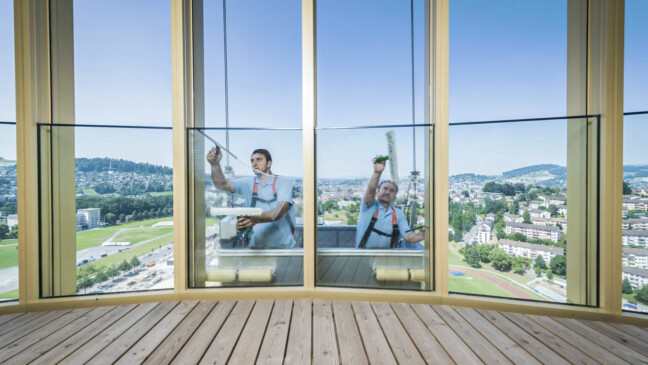
08.08.24
An experience report from everyday cleaning in the operating room
Sabina, an experienced employee at Enzler Hygiene AG, looks back on over 22 years of working in a hospital operating theater. In our interview, she gives us an insight into her day-to-day work and explains how cleaning work in the operating theater has changed over the years. With pride and dedication, she ensures that the highest standards of hygiene are maintained day after day. Sabina also shares personal experiences and gives valuable tips for her younger colleagues. Her story shows how important her work is for the smooth running of the operating theater - and how much passion she puts into her job.
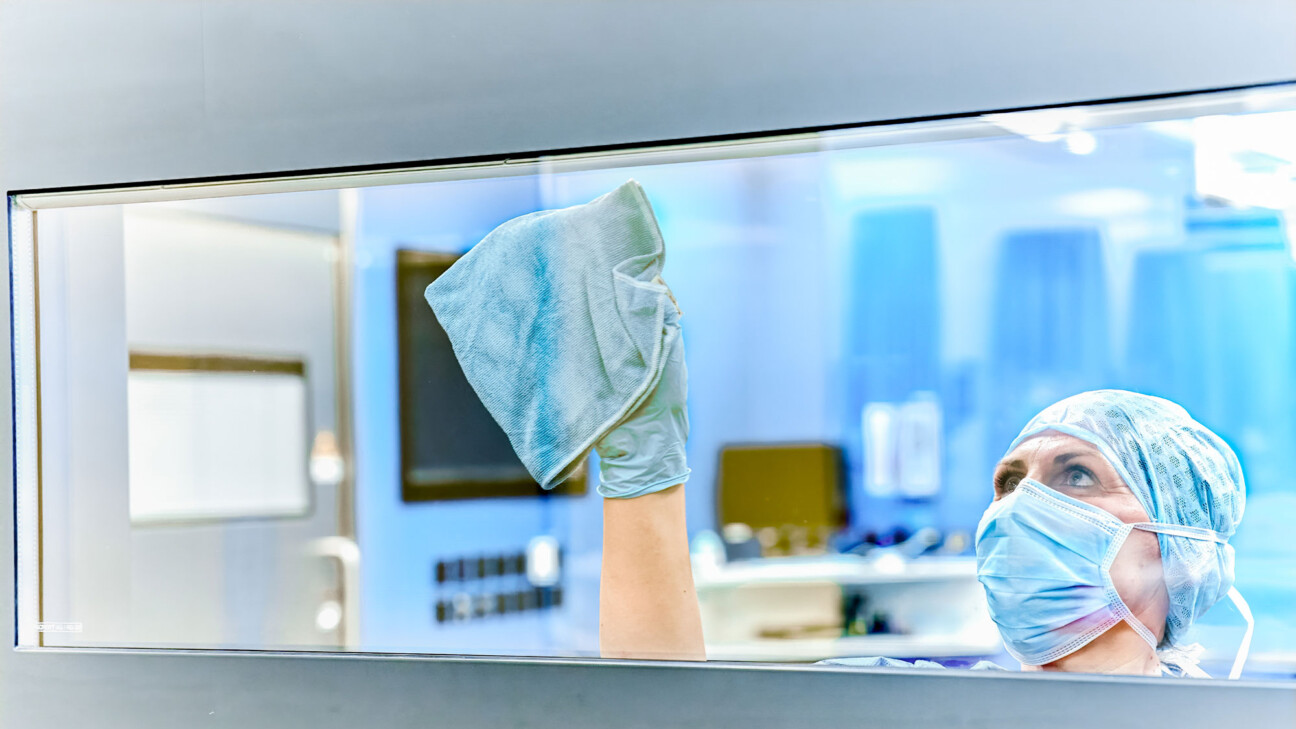
Sabina, I’m delighted that we’re meeting today! I really wanted to talk to you as you have been working at Enzler Hygiene AG for over 22 years. That’s an impressively long time! You work in an operating room in a hospital in the canton of Aargau. How did your journey with us begin?
Thank you very much, I’m delighted too! I am really proud to be responsible for Enzler in the area of hygiene in the hospital. Since my first day, I’ve enjoyed my work in the operating room, and that’s still the case today. I still work on the same ward – in the OR. A lot was different here 22 years ago. Back then, all the operating rooms were being renovated and we now have glass walls, for example, which didn’t exist before. But basically the work has remained the same. There have been innovations, of course, and we have attended many courses in those 22 years. I know the OR down to my fingertips. We have 3-4 different teams here, and the collaboration is always good, calm and discreet.
What training did you do before you joined us? How did you get into this profession?
Before I came to Switzerland, I completed elementary school and four years of secondary school in Bosnia. I would have liked to continue my studies, but due to our family situation I had to stay at home. I later registered with the RAV, then found work and finally met my husband. We got married and had a daughter, who trained as a dental assistant in Zurich. I am now a grandmother of three!
That’s wonderful! So did you do your training specifically for your job at Enzler Hygiene AG?
Yes, exactly. I also acquired my specialization in surgery here.
What does a typical working day look like for you?
I start my day downstairs in the office and stamp room, where I prepare my clean cleaning cloths in different colors (depending on the area of application) and mops. Then I go to the airlock in the operating room. This is where our locator phone is located, which we use to find out where intermediate cleaning is required or other tasks are pending. I then change my clothes, wash, dry and disinfect my hands thoroughly. My hair is neatly tied back and I don’t wear any make-up. Our clean rubber slippers (overshoes) are only used in the inner area. Then I look at the daily schedule that we have received from our facility manager. This plan contains the daily, weekly and monthly schedule so that I always know exactly what needs to be done.
Then I start my work: first my hands are carefully disinfected, then I put on gloves and a face mask. Disinfection takes 30 seconds and must be carried out thoroughly. Then I greet all my colleagues in the operating room. The operating theatre is like a well-organized factory. Of course there are sometimes difficult days, but we always have to know exactly which room is reserved for emergencies. The operations start at 7 a.m. and if something happens, we have to react quickly and clean up – always following the scrub nurse’s instructions. We remain calm, do our work and leave the room discreetly without interfering in the procedure. We don’t talk about what we see or hear, neither with colleagues at Enzler nor elsewhere.
There are different teams in the OR: the surgical team, the anesthesia team and the storage team. Cooperation with the doctors, nursing and logistics is very important. We work together calmly, orderly and with culture throughout the day.
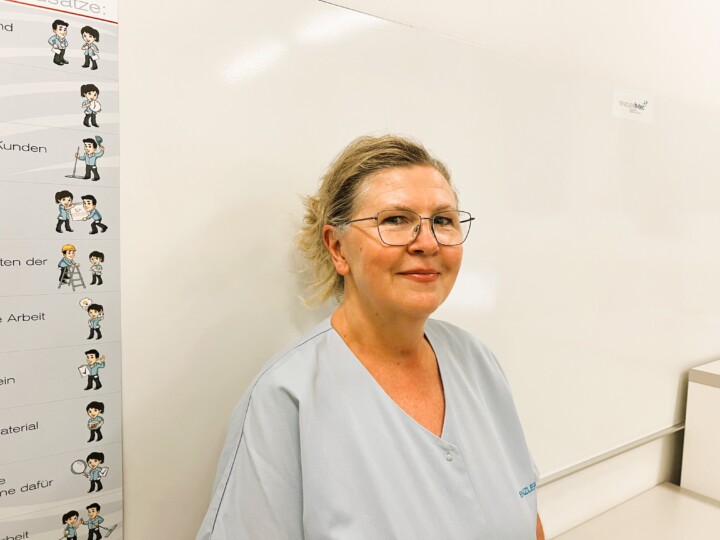
What do you particularly like about your work, and what do you like less?
If there are any uncertainties, I contact my line manager and we discuss together how to proceed. We always find a solution that way.
You mentioned that cleaning work in the operating room has changed somewhat over the last 20 years, mainly due to digitalization. Has your work essentially not changed though?
Yes, it has essentially remained the same. There were changes after the training courses we attended. The course leader came from Zurich and the hospital’s hygiene manager was always there. During the courses, we were shown how we could do things differently or new ideas were presented. Then we thought about it together: Does this improve our work? If the hospital agreed, we did an exercise the next day and tested the suggestion. Everyone was trained and the new approach then became the norm.
What is special about cleaning an operating room compared to other areas in the hospital?
We are specialists who work all day with special cleaning agents. We clean with fresh water in the correct dosage and always wear gloves. The agent has been tested by the hospital and after disinfection there are no more viruses or bacteria. This is then also checked.
Have there been any special moments over the years that have stuck in your memory?
Yes, I remember an event about 18 years ago, first thing in the morning at 7 o’clock. We have a board in the corridor outside the head doctor’s office where he tells us which room has been used during the night and which one needs to be cleaned. We then prepare our materials and start work. One morning, the team from the camp was already preparing an operation for a patient from the private ward and the door was open. I closed the door, but the warehouse staff came back to get something else and the door stayed open again. We started cleaning, and I thought I was alone in the room with my colleague on the other side. We worked systematically: first the walls, then the lamps, from the clean side to the dirty side, and finally the floor.
Suddenly I noticed that the patient was still awake and not yet under anesthesia. I said: “Sorry, I’m not finished yet, I want to clean up nicely.” The patient heard this and asked: “How much longer will it take?” I replied: “Another ten minutes.” He asked the camp team for my name and they said: “Sabina!” The surgery lasted about 1.5 hours and I continued my work afterwards, cleaning 10-12 more rooms such as corridors, transfer beds, the recovery room and so on. Before lunch, I was called by the head of the recovery room, who took me to the private patient.
The patient’s name was Fritz or something like that. I thought I would have to apologize, but he told me to come to his ward during the lunch break. I was expecting trouble, but instead he said he had something for me. When I got upstairs, all the nurses were smiling and looking at me. His wife asked, “Are you on the OR cleaning team?” He was still awake before the operation and heard a friendly voice say: “I have to clean up nicely before the operation!” He was very pleased and reassured by this sentence and wanted to say thank you. Later, I bought a frog in the flower store and sent it with a card saying “All the best and get well soon!”.
That’s a really nice story! That would actually be a nice ending. Thank you for sharing it with us. Finally, I would like to ask you: What advice would you give to younger colleagues who are new to this profession? What is your most important tip?
My most important tip is: Take your work seriously and do it with honesty and pride. This job is very important. My father always said that you should do your job with honesty in your soul. This job is just as important as that of a doctor or boss. Once, the head doctor of the OR invited us to Christmas dinner and took stock of the past year. First he greeted us, the cleaning team, and said: “These women and the cleaning service are like pearls in a necklace. We couldn’t work in the OR without them.” That gave us a very good feeling and filled us with energy!
Another tip for my new colleagues: Go to work with joy and honesty, not just to earn money. When I wake up in the morning, I’m happy because I know I’m going into the operating room. There are easy days and also difficult days, but even if I come home tired in the evening, I’m back the next day. And that makes sense. I’ve been here for 22 years now.
Thank you very much for the interview. We wish you all the best for the last part of your career and then for the next stage of your life.
Many thanks, Ms. Feller, and best wishes to the whole team at Enzler Hygiene AG in Zurich. Especially to the entire healthcare team!
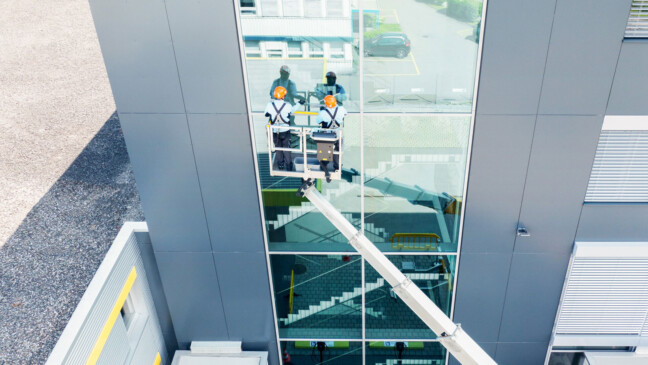
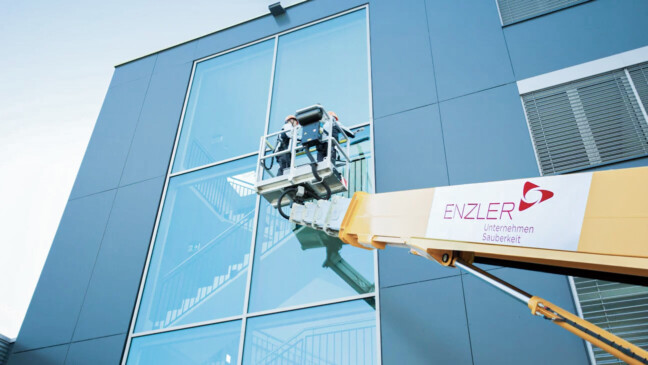
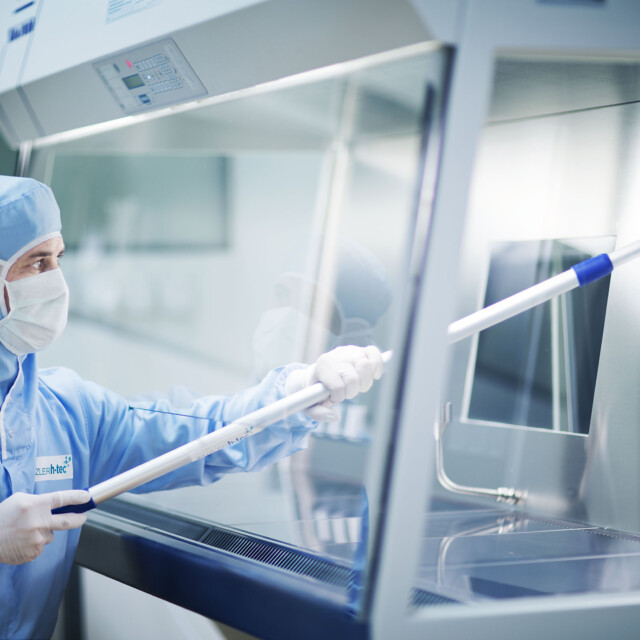
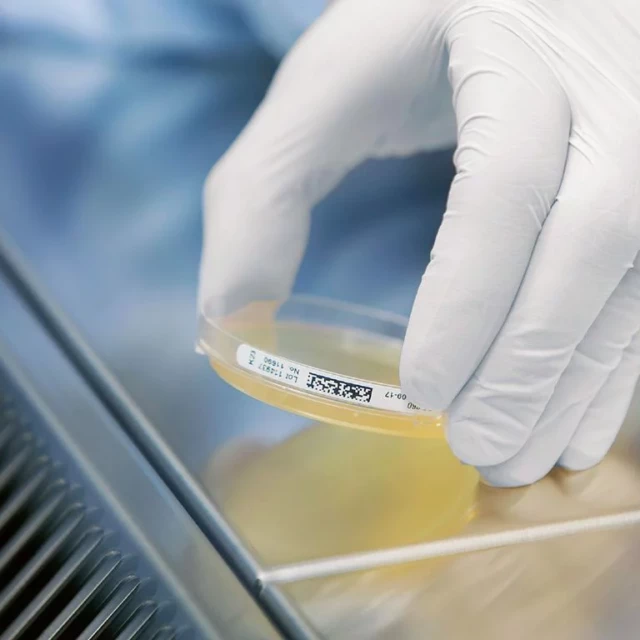
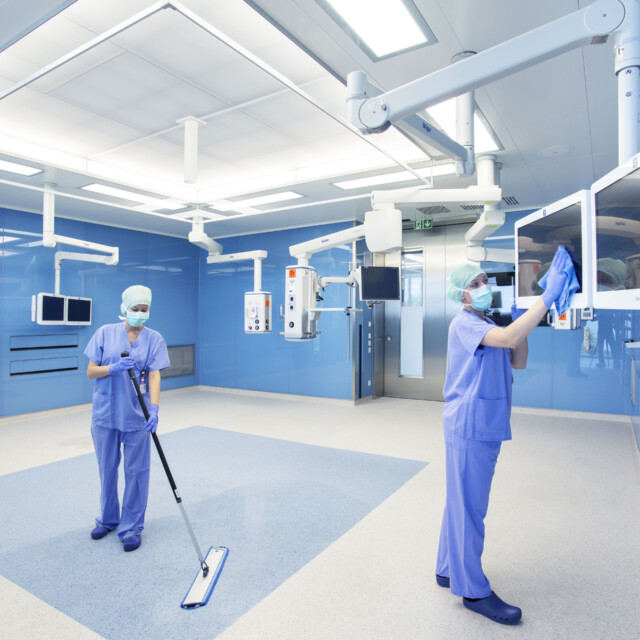
Tell us what you think
Be the first to comment this post.
You must be logged in to leave a comment.